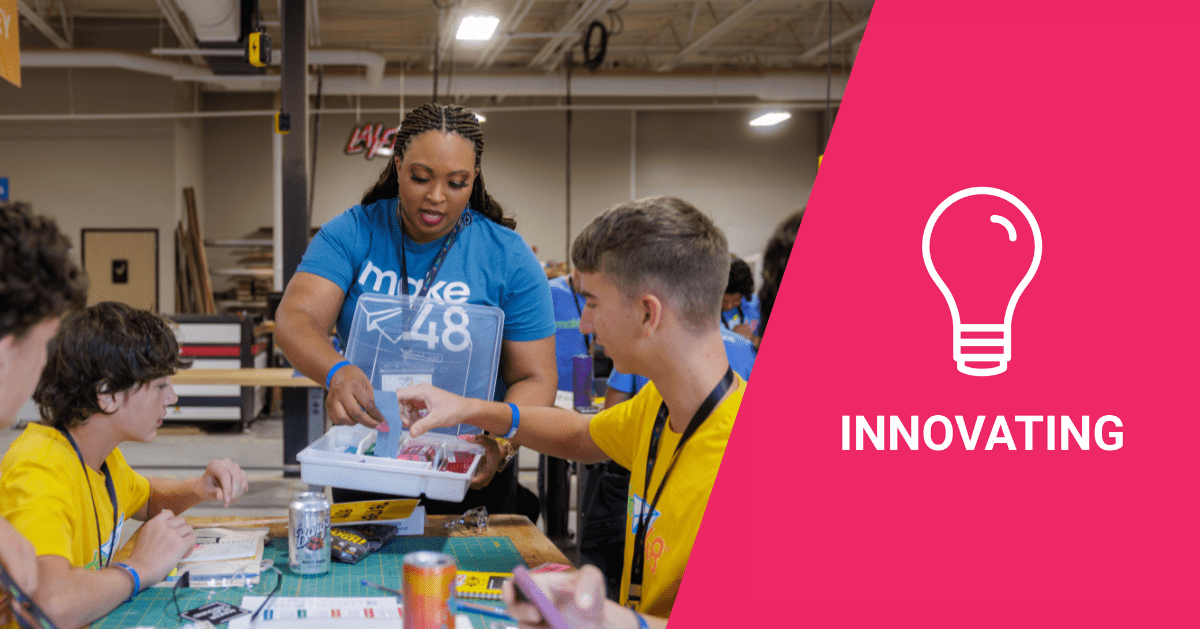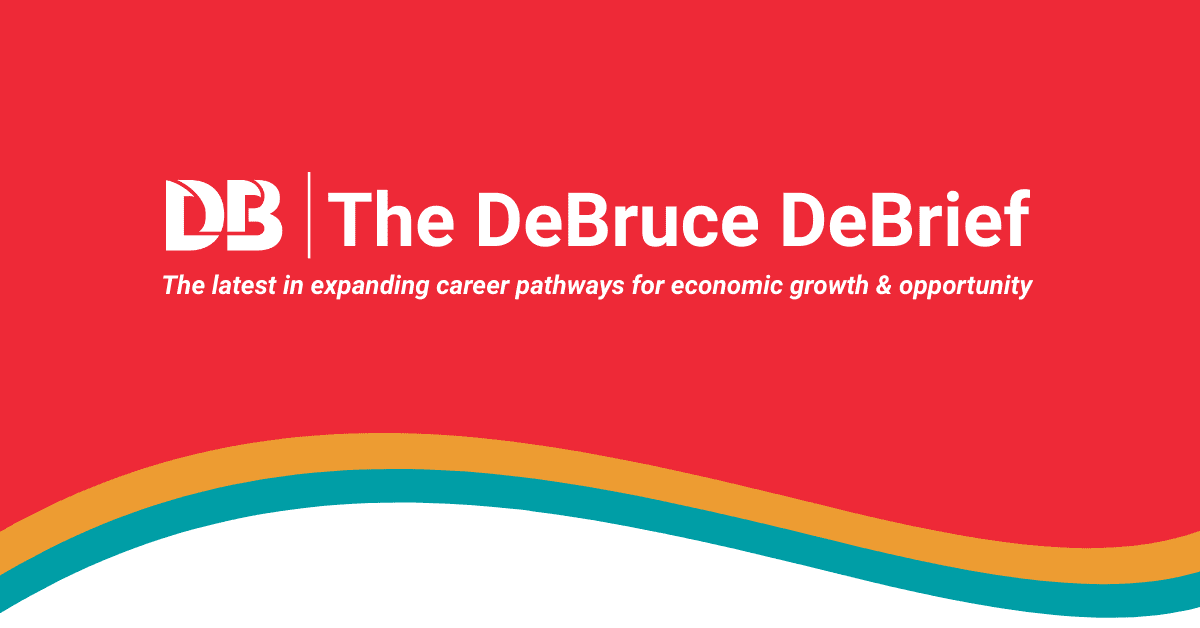Link copied to clipboard
Originally published in the Washington Monthly
Giving Students Career Tools to Be Economic Decathletes
Facing an economy that demands resilience and flexibility, students need to prepare for changing jobs and careers more than ever before.
by Dr. Leigh Anne Taylor Knight
Students graduating from post-secondary schools this year face a future that demands greater resilience and flexibility than previous graduates. On average, they will change jobs 18 times during their lifetimes, have six different careers, and witness an economy transformed by the advent of artificial general intelligence.
Today’s graduates—and those who don’t get their degrees—will have working lives that resemble an Olympic decathlon rather than a single-discipline sport. They must prepare accordingly, with the horizon-broadening resources and tools to foster the agility and mindset that the future demands
But too often, the conversation about education and careers falls victim to a false choice between prematurely funneling students towards a fixed path or giving them no career guidance.
Regarding career literacy, research shows that the ability to explore a wide range of career pathways is one of the critical factors to achieve financial security. On average, working-age adults who exhibit high career literacy and network strength earn nearly $50,000 more annually. But a recent survey from TeenVoice—a for-profit subsidiary of the non-profit American Student Assistance—found that almost half of 13 to 19-year-olds had little to no idea how to prepare for a career. Last month, Gallup found that most high schoolers were unaware of the range of options available after high school, other than getting a four-year degree or entering the workforce.
Even when young people receive guidance, they often consider just one or two careers—a fraction of those they are likely to hold over their lifetimes. One reason for this blinkered outlook is that many of us are taught to view work as a fixed choice rather than twists and turns that draw on skills we possess or acquire and then transfer from one job to another.
The most common framework used for career guidance in the U.S. is the RIASEC model, sometimes called the Holland Code. It’s based on the work of John L. Holland, the late Johns Hopkins professor of psychology and sociology, who sorts individuals into six personality types based on their vocational interests: Realistic, Investigative, Artistic, Social, Enterprising, and Conventional.
It accepts that occupational interests come from static capabilities fixed within basic personality traits. These models assume that what you do will be tightly coupled with who you are, and that you rarely change. But growing evidence shows that people and their occupational interests are far more resilient and adaptable than this model contemplates. Since adaptability is a unique advantage in responding to significant change, students today will benefit from tools that help them tap into their versatility in facing economic disruptions. Recognizing the need to reimagine how we equip people to pursue dynamic careers, The DeBruce Foundation has developed tools based on our extensive research and proven strategies for expanding career pathways. We recently released our sixth annual Graduation Toolkit, free to high school and college graduates nationwide. This includes our Agile Work Profiler©, which helps students discover their work-related strengths and interests—or “Agilities”—in ways that broaden their sense of career opportunities.
Unlike tools that match you with a specific career, these are designed to expand the pathways students consider. A plumber draws on the same top “Agilities” as an airline pilot, and a kindergarten teacher uses the same top “Agilities” as a family therapist. The profiler has been used more than 345,000 times to help people better understand their strengths and interests. These tools have also helped countless career-switchers pivot to new occupations they had never considered.
Building an agile, career-literate workforce will take all of us. Our K-12 schools must expand access to high-quality college and career counseling for all. Multiple states have increased the required career conversations every high school student must have before they graduate. A recent study by the Indiana Commission on Higher Education on the factors behind the state’s declining higher education enrollment found that understanding and selecting a career path was a top challenge cited by students and parents. The panel recommended expanding access to career coaching and other opportunities for students to explore career options earlier, and The DeBruce Foundation is partnering with Indiana to do that.
At the post-secondary level, we need to reform and strengthen traditional higher education institutions to demonstrate their return on investment better, while retaining their ability to produce the well-rounded global citizens our country—and the world—will desperately need. By 2031, an estimated 72 percent of jobs will require a post-secondary credential, and post-secondary education remains a proven path to the middle class. Now is the time to shore up colleges and universities, while diversifying the post-secondary options offered to students, like apprenticeships, trade schools, and certifications.
Employers have a role to play, too. Companies need to be more open to non-traditional career paths and job applicants who have taken breaks to raise kids or pursue education. We encourage everyone involved in a hiring or recruitment process—and the AI tools that increasingly support them—to consider our research suggesting that applicants may be well-suited for jobs that seem vastly different from the one they are in. The momentum around skills-based hiring and apprenticeship programs, which are so popular in Europe, is another promising trend. Labor statistics suggest artificial intelligence is already having an unforeseen impact on the entry-level job market, and we may all need to switch or rethink our career paths sooner than we thought. So, preparing students for the decathlon of an AI-dominated future is urgent.
Achieving this takes complementary supports and strategies because students need all of the above: technical training and experiential learning for jobs that exist today; problem-solving, critical thinking, and communication skills like the kind offered by traditional higher education institutions; and innovative tools that will help them adapt their skills and interests in the future. We need to bolster all these pillars, not pit them against each other. It is no accident that Jackie Joyner-Kersee, whose world record in the heptathlon still stands today, has dedicated her foundation to helping young people “win at life.” The legendary athlete, who joined us for our 2023 National Career Development Month kickoff, knows what it takes to train for a high-stakes multi-disciplinary competition: dedication, grit, and resilience.
To future-proof the class of 2025, we all need to empower a resilient generation of economic decathletes and heptathletes, prepared to adapt their skills to win in a rapidly changing economy.

